Data Governance a key element for Digital Transformation
For the last few years, corporate environment, used to speak and hear lots of financial/management terms, witnessed a flood of technical jargon like Analytics, Artificial Intelligence, Data Lake, Deep Learning, Chat bots among others.
Digital Transformation definitely changed how companies deal with and price subjects which, so far, has been considered high risk investments and more associated to science fiction than corporate world business.
Why did it happen? You may ask. Because a long line of success cases has already proven that Artificial Intelligence and Data Science are not just the latest buzzwords, but they do provide valuable results. Even “late adopters” need to adapt themselves to this new reality or be left behind.
Nevertheless, after all the excitement generated by this new AI world, lots of questions remain open regarding how to get into this new hype field successfully and sustainably, making sure we are not joining a sinking canoe in the middle of a Data Lake.
Lots of questions remain open regarding how to get into this new hype field successfully and sustainably, making sure we are not joining a sinking canoe in the middle of a Data Lake.
At this point, we start to face many other jargon, such as MVP (Minimum Viable Product) and POC (Proof of Concept), which originally were designed to allow a continuous product development and test drive new ideas before mass adoption. Although, they end up being used for half-finished short term projects without any kind of real foundation, which will never become sustainable products.
However, if appropriately used, these methods enable us to measure true quality of the path we are following to achieve our goals and fail fast, or at least, learn fast, applying the famous Agile Methodology.
Then, many other terms are born, such as "squads", "hubs", "icebox", "labs" among others
In this article we would like to point out a term mostly forgotten and avoided, that even though being considered the ugly duckling of this new AI world, need to be kept in mind and highlighted, Data Governance.
Data Governance isn't a new subject, it has been around for quite a while, but in the new Big Data era, neglect it can lead to a Big Problem.
Here are some quick tips on how to deal with Data Governance and some hot point to keep in mind (and maybe on a post it at your desk):
Let's talk about security?
When thinking about Data Collection it is important to always think of cyber security, because every data pipeline connecting your data storage to your data sources (IoT Devices, External Databases, ...) may require extensive firewall permissions which may initially speed up your project making it more "Agile", but also making it more vulnerable to cyber attacks, both internal and external. Working together with your cyber security team and building up DMZ's (Demilitarized Zones) is a must for any successful data related project. Indeed, same concern applies not only to the collection, but also to subsequent consumption by dashboards and panels of predictive and prescriptive.
Identity management, even by manual processes, and user and service accounts access are critical to avoid unconscious exposure of information to audiences that even authenticated should not be authorized. In addition, discussions about GDPR (General Data Protection Regulation) that directly address the specialization of personal data protection are also extremely relevant in the management of AI, since the user must give prior consent for the treatment of their personal data, so end-user systems that eventually become data sources for advanced analytics need to be adapted.
How to store my data?
Instead of following the herds, adopting all sort of data lakes like technologies, understanding your use cases, starting with "why" rather than "what" is an important factor in determining data repository technology in your data governance strategy. Using a Data Lake for use cases that require rigid schemas or using a traditional database for storing unstructured data leads to inefficiency and increasing costs. Just "believing" in some technology and mention a jargon twice a day is no guarantee of success.
It is important that your work group can have a clear view of use cases and thus identify the rules of use. In addition, it is always worth studying your own legacy, reuse, because it is often not a matter of revolution, but of evolution of data management. As an example, Historians usually work well for the world of industrial time series and the question instead of replacing becomes complementary, integrating. A very relevant point for repositories is also about the dictionary / data catalog, otherwise, for example, your data lake can become a big data swamp.
In addition, it is always worth studying your own legacy, reuse, because it is often not a matter of revolution, but of evolution of data management.
Contracts
By contract we mean the relationship between entities, setting the level of trust between parties with their duties and rights. It is possible that your data sources to be used as data foundation for AI models may be under the management of a different department. Do not ignore this fact, identify responsible people, set up forums, empathize, understand access performance concerns, deal with SLAs (Service Level Agreement) and OLAs (Operation Level Agreement).
Peopleware:
Your team needs at least a Data Steward, a Data Architect and a Data Quality Lead.
Data Steward: The focal point for data related problems of a particular subject. Responsible for mapping the new data to be acquired, make sure the project is in compliance with data regulations, design ways to measure the quality of the data and also supervise the usage of the data
Data Architect: Designs and creates a reference architecture, with naming and extraction standards.
Data Quality Lead: Responsible for monitoring and assuring the stability and continuity of the data storage environment. He routinely checks the quality and completeness of the data.
Well, at this point, we hope you deeply appreciate and understand that Data Governance is a foundation stone for a healthy and sustainable Digital Transformation in your organization. We hope you make good use of all information above and leverage digital transformation at your work place.
You May Also Like

Install These Free Security Tools Now!
Have you heard of intrusion detection systems? Also known as IDS, this software is often used to det...

Crowdfunding drives unprecedented efficiency
Crowdfunding has become the center of attention in the field of financing. It is also an increasingl...

Everything As a Service
Transition from Capex economy to Opex Economy World is in a transition from Macro to Micro. Granula...

IoT in Malaysia – 2019 Predictions
The year 2014 is when Malaysians started to Google the term “IoT” and ever since, the hy...

The business case for 5G
As of 2018 ,33 MNOs have been involved in 5G trials within Asia Pacific, accounting for 44% of 77 tr...

A New Face On Digital Transformation: Engagement Innovation
Whether we believe it or not we are in the fourth industrial revolution – The Digital Revoluti...
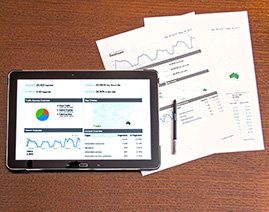
Technology & Competitive Data Analysis More Money – More Competition; everyone wins
Technology & Competition – More Money, Better Deal for Consumers & Companies – H...

Anatomy of Fintechs that’s redefining Financial services business models.
On a weekend in 2013 during monsoon I invited my friend and his family for a dinner at my place. It ...

Blockchain Taxation
World has paid a heavy price for trust, transparency, controls and accountability. Globally there i...

Why Is CDR / CDNR So Important?
Addressing the Fundamental Deficiency in Today’s Mainstream Cyber Security Strategies From Det...

CIO Business leadership - shifting from tech to business leadership
CIOs are no longer technocrats, they are business enablers and crucial part of organisation. CIOs sh...

Ideas and Opinions | 5G as an Enabler of Smart Cities
When 5G comes to mind these days, we think of “is this REALLY it?” and “have we re...

Lessons in Machine Learning
More organizations are using machine learning for competitive reasons, but their results are mixed. ...

Digital Indoor System: Critical Infrastructure for Digital Economic Transformation
Digital Indoor System: Critical Infrastructure for Digital Economic Transformation Developme...

The Changing DNA of the CIO CIO as Business Enabler
The idea that the role of the CIO has now gone beyond technology and innovation related issues, and ...

Today's Digital Miners
Today's Digital Miners I guess by now everyone of us who have read an article or two on digital...

Digital Transformation Readiness Test for Banks
Digital Transformation Readiness Test for Banks The questions banks need to try to answer to test ...
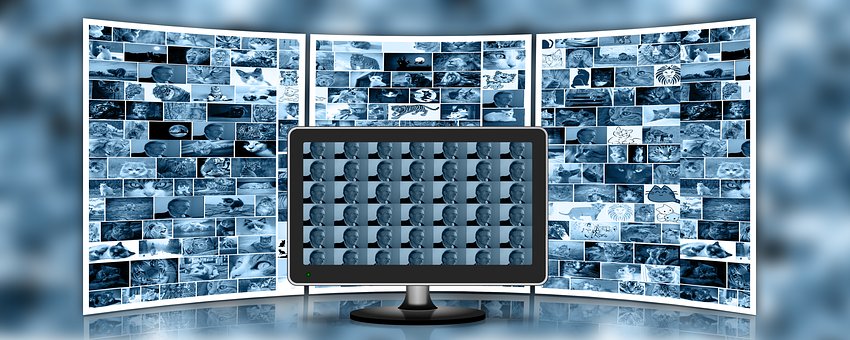
What is Machine Learning
What is Machine Learning? According to Tom Mitchell, a professor at Carnegie Mellon University has d...

Transformation of industry verticals through 5G – Focus and Look Indoors
Transformation of industry verticals through 5G – Focus and Look Indoors Now that 5G is...
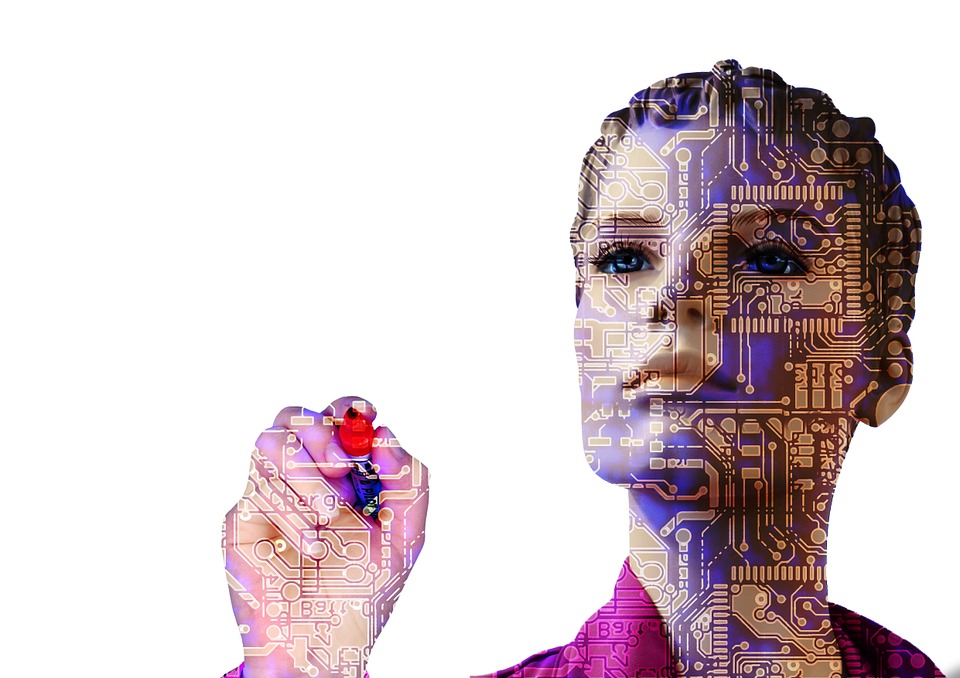
Humanize Technology - back to the basics of serving human needs, humanly
Humanize Technology - back to the basics of serving human needs, humanly The subjects of Digital Tr...

Creating the foundation for Sustainable Innovation
Creating the foundation for Sustainable Innovation In 2011, Marc Andreessen famously proclaimed tha...

About Tech Data Diversity And Inclusion
About Tech Data Diversity And Inclusion I am excited about attending the Hispanic IT Executive Coun...
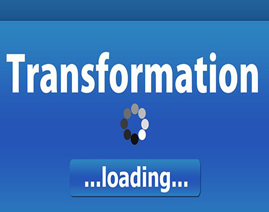
Digital Transformation: Customer Centricity & Intimacy
Digital Transformation: Customer Centricity & Intimacy It was inspiring listening to IMD Profess...

Is Industry 5.0 putting humans back in the center
Industry 4.0 focused on the machines. Is Industry 5.0 putting humans back in the center? I was on a...

Importance of IT Resilience
Importance of IT Resilience Disclaimer: The posting written here is solely of my own comment and ...

Implementing a SaaS Solution – The 3 Major Technical Challenges
So when are you planning to implement a SaaS (Software as a Service) solution? Very soon, if not alr...

So you want an #Innovation Hub?
Innovation, Design Thinking, Digital, Disruption, Agile, Transformation - these are new buzz words t...

The Unsung Hero; The Data Scientist
It is quite likely you are wondering ‘what on earth’ am I on - for cooking up such a tit...

How POC projects made me a better Project Manager
How did I get here? Project Management is a tough job. We need to keep a track on budgets, timeline...

How Data and AI can help in COVID-19 crisis
Since the first report of coronavirus (COVID-19) in Wuhan, China, it has spread to at least 100 othe...

Building thriving business partnerships with Open API
Apple and Google recently collaborated to assist in enabling contact tracing and reducing the spread...

The Future of Indoors with Digital Indoor Systems
Digital Transformation, 5G, and COVID-19 have triggered further growth in indoor traffic Digital tr...

Seizing Opportunities in the ICT Sector
The Increased Pace of Digital Transformation Automation, digitalisation, artificial intelligence (A...

CoVID19, Digital, ML
CoVid19 hit us and has now created the “new Normal” in terms WFH, Video conferences, bal...

Do we really need CEOs, CFOs, and CIOs?
Why CMOs and CTOs are all you need to succeed in today's world This is my first article in a se...

Cinématographe by the Lumière Brothers & History of AI
The Lumière brothers, Auguste and Louis, French inventors and the pioneer manufacturers...

Avenues To Expedite The Incorporation Of 5G Into Industry
5G has been launched in Asia Pacific. South Korea, China, the Philippines and other countries have b...

4G/5G Fixed Wireless Access: A Critical Revenue Growth Engine
In studying key success factors of solutions, it can almost always be shown that the underlying conc...

Big Data Machine Learning IoT and PI
In the era of the Internet of Things (IoT), an enormous amount of sensing devices collect and genera...

Asia’s Plan To Leverage 5G Is Missing A Regional Strategy
The day the world’s first commercial 5G services promised a “great leap” is still ...

Learning from #COVID19…Would remote working be the new normal?
Musings of a Technology Evangelist In the past few months, we have all learnt many new terms&hellip...

Principles of Sustainable Cybersecurity
In past few years the annual rate of cybersecurity breaches has almost been doubled, and as a result...

Seven Traits of a Millennial CEO
With a staff strength and annual turnover in the order of billions and trillions respectively, Chris...
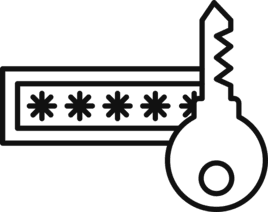
What is a Pass Key and Is Now the Time To Adopt Them?
What is a Pass Key and Is Now the Time To Adopt Them? There has been recent news about a mass...








Edson Antonio
Global Manager for Data & AI, Digital, Vale
After graduating in IT and holding an MBA in project Management, Edson Antonio worked as a Global Manager for AI at VALE mining company. Managing a global and multidisciplinary team, writing articles and fostering partnerships with tech companies and universities, Edson has been influencing and supporting a variety of industries over the last decade to adopt a Data Driven approach to daily decision making in Brazil, Chile, Canada, USA, Africa and Indonesia, either by successfully delivering AI platforms or speaking at conferences on these locations.